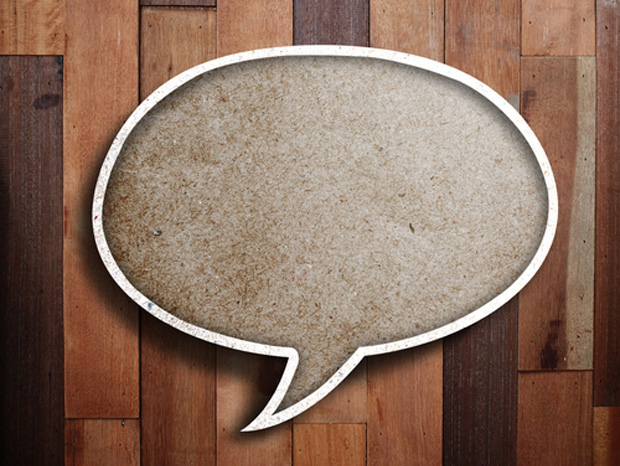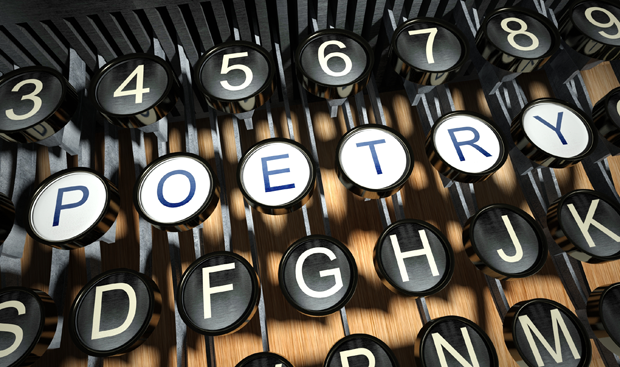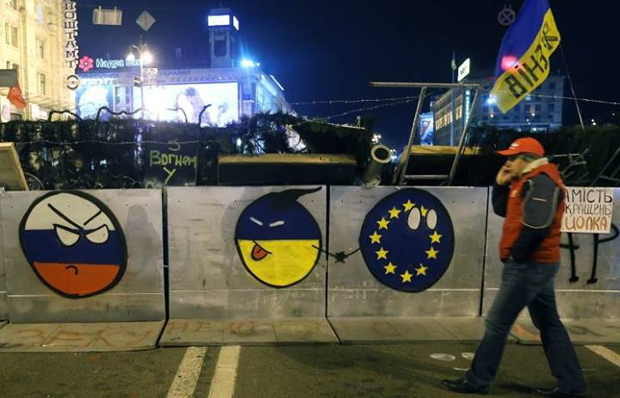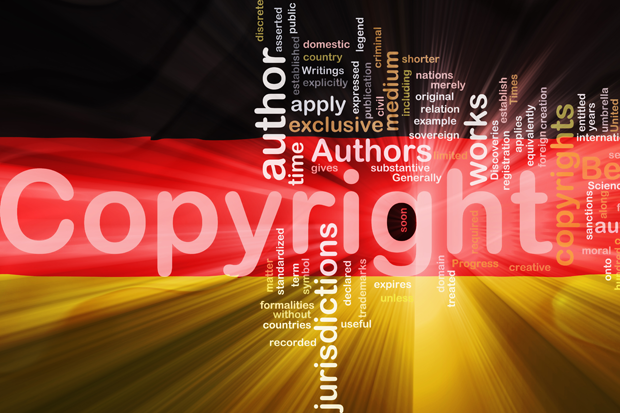25 Apr 2014 | Americas, News and features, United States, Young Writers / Artists Programme

(Image: Bplanet/Shutterstock)
(a list poem)
Because if you’re an artist, you never know where you’ll go.
Because you need a personal identity number to send a package.
Because an IP address is not a perfect proxy for someone’s physical location, but it is close.
Because I do most of my research online.
Because there hasn’t been a proper rain in California in over three years, and this year may be the driest in the last half millenium.
Because the burning of fossil fuels is destroying our atmosphere.
Because persistent cookies are stored on the hard drive of a computer until they are manually deleted or until they expire, which can take months or years.
Because tracking cookies are commonly used as ways to compile long-term records of individuals’ browsing histories.
Because server farms require massive amounts of energy.
Because the friend who wanted to send the email “Photos from Taksim Square” couldn’t until she changed the subject to “Paris Vacation Photos”.
Because the line between “public” and “private” is tenuous at best.
Because the ACLU is doing its best.
Because a webcam’s images might be intercepted without a user’s consent.
Because a surveillance program code named “Optic Nerve” was revealed to have compiled and stored still images from Yahoo webcam chats in bulk in Great Britain’s Government Communications Headquarters’ databases with help from the United States’ National Security Agency, and to be using them for experiments in automated facial recognition.
Because it’s sketchy to be a Communist.
Because the Defending Dissent Foundation is all kinds of busy.
Because the U.S. army actively targeted nonviolent antiwar protestors in Washington in 2007.
Because I saw it on Dronstagram.
Because everything will or might end up on the internet.
Because the internet is a wormhole full of parasites.
Because I am trying to connect all of the dots.
Because free speech is a tinted mirror.
Because all mediated information is processed, edited, and altered.
Because Wally Shawn had to bring his play to Glenn Greenwald since the journalist who broke the story about Edward Snowden can’t return to the United States.
Because the author risked his freedom and physical security for the truth.
Because artistic solidarity is framed as criminal complicity.
Because how could I forget that language is always political?
Because Chelsea Manning is still being misgendered.
Because the personal is always political.
Because it’s not just the major political players.
Because of the metadata collection.
Because a local surveillance hub may start out combining video camera feeds with data from license plate readers, but once you have the platform running, police departments could plug in new features, such as social media scanners.
Because the Domain Awareness Center’s focus has been not on violent crime, but on political protests.
Because the collapse of the economy and the devastation of the environment are two sides of the same coin.
Because of the NSA’s presence at UN climate talks.
Because of the vested interests in the oil industry.
Because tell me something I don’t know.
Because my personal information is probably being used not just for advertising purposes.
Because despite Facebook’s rights and permissions policies, I still want to share with my friends.
Because Pussy Riot was imprisoned.
Because the Trans-Pacific Partnership would rewrite rules on intellectual property enforcement, giving corporations the right to sue national governments if they passed any law, regulation, or court ruling interfering with a corporation’s expected future profits.
Because I don’t know who is making money off of my information.
Because Abstract Expressionism was funded by the CIA.
Because of the time-honored tradition of governments keeping tabs on artists.
Because we don’t want jobs, we want to live.
This poem was posted on April 25, 2014 at indexoncensorship.org
17 Mar 2014 | News and features, Religion and Culture, Young Writers / Artists Programme

A few weeks ago, 13,000 writers swarmed Seattle for the annual Association of Writers and Writing Programs conference. In the seaport city known for its ideal reading (and writing) weather — and home to poet Maged Zaher — writers filled hotel rooms and bars. On official panels they debated the state of contemporary literature, and at offsite readings and parties, they celebrated the written word.
The song of the nightingale / Is not up for sale
Ziba Karbassi, Gravequake
On the other side of the hemisphere, Ziba Karbassi doesn’t need to attend a conference to know what contemporary literature looks like. Born in 1974 in Tabriz, Iran, this rising star of Persian poetry, who also writes in her first language of Azeri Turkish, has been living in exile in London since leaving her country in 1989. Karbassi has published eight books of poetry in Persian, and with Stephen Watts, she has translated much of her work into English.
Taken from an incident close to the author’s family in the 1980s, her poem “Death by Stoning” depicts a young pregnant woman taken to prison, tortured, and stoned to death:
I am not a scaffold to be toppled
not a felled tree to be sunk in the flood
I am only a bag of bones and skin
smashed about
The heavy consonants in the nouns and adjectives and the scattered form of the poem demonstrate the mother-to-be’s “anguished, loving, and crazed” state of mind. “Death by Stoning” shows how poetry can give us a view into worlds distant from — but not entirely unlike — our own. Poetry can also play a part in shaping our world.
After the US invasion of Iraq by the Bush administration in 2003, over 13,000 poets rallied in the global movement Poets Against the War. During Occupy Wall Street in the autumn of 2011, poets from around the world contributed to the People’s Library in Zuccotti Park to form a living, breathing, inclusive anthology of the moment. At Occupy Oakland’s Port Shutdown on 2 November, 2011, there was a strong poets’ contingent, and when protestors in Cairo marched on Tahrir Square in solidarity with Occupy Oakland, the meme “Don’t Afraid” from one protestor’s sign quickly became a poetic rallying cry for Oaklanders.
But for artists as for whistleblowers — especially those working against repression, colonialism, and the destruction of the environment by big business — exercising free speech, online or off, can still lead to worst-case scenarios of exile, as in Karbassi’s case, and execution, as friends, relatives, and fans of Arab-Iranian poet Hashem Shaabani can attest to.
What! Graveyard? Fear? Are you kidding? You’re kidding, right?
Gravequake
Karbassi, however, is not afraid of expressing herself, and poets continue to organise, as manifested at the Revolution and/or Poetry conference in the San Francisco Bay Area in October 2013.
Our poetry is not exactly our politics, and our politics are not necessarily our poetry, but the line between them is blurry and easily crossed. Poetry remains a relatively free space: there are plenty of freely accessible journals on the internet; house and salon-style readings are growing in and around urban centres; anyone could submit to the Occupy Wall Street anthology, and all submitted poems were accepted. The art form remains a hopeful space for full participation in cultural and everyday life, whether we gather at conferences or in the streets — or both.
This article was posted on March 17, 2014 at indexoncensorship.org
7 Mar 2014 | News and features, Religion and Culture, Ukraine, Young Writers / Artists Programme
As the Euromaidan protests gripped Ukraine, French street-artist Roti travelled to Kiev. He was eager to support protesters who were struggling with a violent police response to their government’s tilt toward Russia.
For months Roti had worked on an idea for a sculpture: A woman emerging out of water. The concept, which was originally meant for Paris, took on new meaning as the demonstrators in Kiev became set on revolution.
Roti cast his idea in marble and the sculpture, New Ukraine, became an allegory for Euromaidan protesters. The woman’s face, toes and hands protruded from the block of stone. As she struggled for freedom, she created ripples in the stone surrounding her – after all, discontent spreads.
On January 7, 2014, the artist illegally installed his work at the center of Kiev’s Independence Square. “It’s a gift. Not to a nation but to its people”, Roti declared. His intentions were clear. The work came as attacks on journalists and protesters became more and more regular. New Ukraine was a symbol of hope and progress at a time when resolve could have easily wavered.
The night of the installation, protesters celebrated by dancing and singing in the street. Confidence seemed momentarily rejuvenated. In the following weeks clashes between police and protesters would claim their first lives.
New Ukraine is not the only street-art to offer support to the Ukrainian people. Graffiti decorates Kiev’s main square – crossed out swastikas and the slogan “BIG BROTHER IS WATCHING YOU” have become common features.
During protest, street-art becomes a barometer of social consciousness. Scrawled words and images on city walls reflect changing attitudes and a disdain for the ruling authority. The stencils of President Yanukovych’s body, punctured with bullet holes, were a more extreme example.
Like the ripples of New Ukraine, street art spread ideas through Kiev and further afield. With Twitter and Reddit offering a more collective version of the news, artists’ efforts escaped the borders of Ukraine and communicated their message to the global community. They achieved impact through imagery and reached a more diverse audience than most newspapers.
It was on Reddit that I discovered a photograph of a police barricade. It had been painted with a cartoon depicting a Ukrainian flag holding hands with a European flag as Russia looks on, scowling. The message was simple but memorable.

Protest posters also played an important role in boosting morale. Displayed around Kiev during the early days of the crisis, they highlighted the government’s inconsistencies and the power of the Ukrainian people. Of course, the country’s flag’s blue and yellow is the overriding color theme. Pairing graphic design with emotionally engaging political statements – “I am a drop in the ocean” – these works were incredibly empowering.
With a selection of these posters currently on display in Edmonton, Canada, it’s easy to see how imagery has the power to spread a political message. The exhibition features 50 designs which were posted around Ukraine. Each work was designed to encourage their audience to identify emotionally while keeping the message clear.
Artists use symbolism to monumentalise protesters’ efforts. With museums and galleries filled with artist’s renditions of historical events, we are programmed to link iconic moments with art. As creativity littered Kiev’s Independence Square, demonstrators were spurred on – the art around them transformed Euromaidan into a very stirring moment. Demonstrators were reminded: Here is the chance to make history.
Although they have since been annulled, anti-protest laws and restrictions on social media revealed the extent of how close Ukrainians came to losing the right to express themselves.
But on the streets, ideas would have continued to appear on walls and barricades. Street-artists cannot be tracked by algorithms. During times of crisis, they will always be on hand to support the people and spread their message.
This article was published on March 7, 2014 at indexoncensorship.org
6 Mar 2014 | Digital Freedom, Germany, News and features, Young Writers / Artists Programme

Photo illustration: Shutterstock
In February, thousands of websites urged their users to help stop web monitoring. The Day We Fight Back, led by American lobby group Demand Progress, condemned NSA Internet surveillance and remembered Aaron Swartz, opponent of the Stop Online Piracy Act (SOPA), who hanged himself last year when faced with fifty years in prison for downloading academic texts. Swartz, from whom courts sought $1m in fines, is synonymous today with US clashes over online justice, but the subject is a global one. Germany, where I moved just before SOPA hit the news, offers a frightening glimpse at what happens when copyright policing trumps privacy.
I moved to Berlin in September 2011, as the German Pirate Party won its way into the city state’s assembly. Papers bewildered by this breakthrough named the party, all of whose candidates gained seats, the new rebels in national politics, noting their platform reached young, deprived and disaffected voters. I spent October in a part of town with plenty, renting a cupboardlike room while seeking somewhere longer term. The other tenants, a Barcelonian tour guide and science student from Berlin subletting empty space for cash, already knew each other. Nocturnal, inconsiderate and antisocial, the new kid scared of trying to make friends, I wasn’t a good flatmate, and left amid severe awkwardness.
At my new address, the scientist – passive-aggressively polite – told me I had to sign a retroactive rental contract. This could easily have been done by email — when he asked to meet, I should have smelled a rat, but obliged outside a supermarket in November, not stopping to wonder why both ex-flatmates turned up. “While you were here,” he said once papers were filled out, “you used BitTorrent?”
I had, I said, like almost all my friends. Filesharing was in my eyes like speeding on the motorway, an illegality most practised and few cared about. “We all do it”, the Barcelonian said, who seemed to have come reluctantly.
The scientist produced a further wad of fine-print forms. “We got sued”, he told me, “by the music industry.”
This wasn’t quite true. The document he held was an Abmahnung, a razor-edged cease-and-desist letter of German law, which lets lawyers bill recipients for time spent drafting them. The aim is to curb legal costs for poorer plaintiffs, but since other laws allow solicitors to act without instruction, firms monitor the web (often via private companies), posting them en masse to copyright infringers as a profit-making scheme; 500,000 people, reports claim, receive them yearly. Whoever issued one to my flat sought money for themselves – rights holders almost certainly weren’t briefing them.
I didn’t know any of this back then. In England, where no such business model thrives, being caught filesharing was unheard of. When I moved there, I had no idea of the German situation, and wasn’t ready for the consequences. Ambushed by ex-flatmates, intimidated and off-balance, I didn’t just sign forms admitting I’d downloaded one major artist’s album – I signed others the scientist handed me stating I’d bootlegged files I hadn’t. These accounted for nine tenths of what I later had to pay — at current exchange rates, close to £2000.
The film and record the forms named, presumably, were torrented by someone else in the flat. I’d never heard of them, and with ten minutes to think straight would have realised that – but thinking straight when bombshells land, not least while scanning foreign legalese, is difficult. Half on autopilot, half assuming I knew them by other names, I signed the papers in the bedlam of the moment. “Um ehrlich zu sein”, the scientist said once I realised my mistake, “glaube ich dir nicht.” To be honest, I don’t believe you.
If I didn’t pay the four figure sum the Abmahnung called for, the firm behind it would file suit – in which case, he said, he’d forward them what I signed and I should find a lawyer. Had I hired one, I might have been cleared or at least fined less. Specialists can haggle numbers down – typically, says Cologne solicitor Christian Solmecke, “by about half”. The trouble, which led me to pay up, was that this wouldn’t be much better.
Abmahnung victims, the Pirate Party states, are often “seriously intimidated”. A court case at the best of times is hard — this was my year out as a language student, my German was nowhere near strong enough, and the thought terrified me. Inflated study grants for life abroad arrived, by chance, just as the crisis hit, and my finances were fortunately healthy even after paying out, but a lawyer wouldn’t have been cheap. Solmecke’s firm charges €400-500 to represent its clients (£300-413), seemingly a mainstream rate, and legal bills stack up.
Not all those affected are BitTorrent users. Hamburg resident Karin Gross was charged €300 when an Abmahnung alleged she’s downloaded an obscure illegal media program which bore all the marks of infectious malware; firms like Kiel lawyer Lutz Schroeder’s make thousands threatening those in her position. “You either get ripped off by some lawyer sending you an Abmahnung”, she told the press, “or you have to hire another lawyer who costs just as much.”
Others pay for honest oversights. Pensioners Lydia and Heinz Paffrath, who sold their grandchildren’s old toys for them on eBay, were charged over €650 when they accidentally advertised a doll’s wardrobe under the wrong brand name. Canadian exchange student Nina Arbabzadeh, visiting Berlin in 2012, was billed €1200 for downloading Frank Ocean’s Channel Orange, which neither she nor her flatmate had done. A visitor who had, they guessed, had used their wireless with torrent software left on.
It’s true, I torrented a handful of things, in one case getting caught, and that most Abmahnungen go to users who do. Does this justify the fines at hand – more, I noted then, then you’d get for vandalising Berlin’s city trains, and far more than for shoplifting DVDs? I haven’t touched illegal downloads since, and my web use now is hemmed in by a mesh of proxy servers and precautions. Even having sworn off BitTorrent, I’m anxious, second-guessing every click and panicking at German-language post (last month, when an official looking envelope came for my flatmate, I Google-searched advice for half an hour — it turned out she had unpaid speeding tickets.)
“If you’ve nothing to hide, you’ve got nothing to fear”, the snooper’s mantra goes, but it’s more and more impossible to know what will and won’t be punished.
Last July, a Hamburg court capped sums ordered of downloaders at €150, a measure lauded by the press and praised by local activist Anneke Voss as curbing “the Abmahnung industry’s shameless excesses”. The federal Law Against Dubious Business Practices followed in October, applying an admittedly less helpful €1000 limit nationwide. It didn’t stop the biggest wave of Abmahnungen in history, more than 30,000 people getting them in one December week who’d visited RedTube.com, an adult site whose pornographic clips – some, under copyright, uploaded by third parties – are streamed like YouTube videos.
This isn’t even filesharing — users are made to pay up or face a legal fight simply for viewing web pages. It doesn’t matter that the case against them is a flimsy one. Costs plunge many in to crisis even if they win. Torrenters may not be protected either, as the new law waives its cap on fines “if the stated value [lost to rights holders], according to the individual case’s own circumstances, is considerable”. No one knows yet what this means in practice – a lengthy period of wrangling is expected to ensue – but vested interests will no doubt defend their moneymaking prospects.
British and US laws give firms less room to act like this, but it’s clear to those who care that Germany’s status quo is less a triumph of fair play or honesty than a toxic cocktail of profiteering and surveillance. It’s easy to see, post-Swartz and post-Wikileaks, how the assault on piracy might lead down such a road.
If it does, the world will be dragged with it. SOPA, which threatened the wholesale existence of media platforms like YouTube, Flickr and Vimeo, was meant to take worldwide effect. Officials opted to “postpone consideration of the legislation until there is wider agreement”, shelving rather than scrapping the proposals. The act, or the prospect of one like it, still hangs over us. Even that may not be needed. In David Cameron’s Britain, where service providers were ordered last year to block video-sharing sites, the Big Society ideals of web-policing and privatised justice could produce a German style free-for-all if left to run their course.
The internet was made for instant data replication – in other words, for filesharing. Copyright laws weren’t passed with it in mind. On social media this week, you’ve likely witnessed dozens of infringements – photos, gifs, videos, quotations. Clampdowns on piracy, as the German system demonstrates, attack the core idea of the net, scapegoating users for new technology’s inescapable impact. Rights protection has its place, but must be reformed.
This article was posted on March 6, 2014 at indexoncensorship.org





